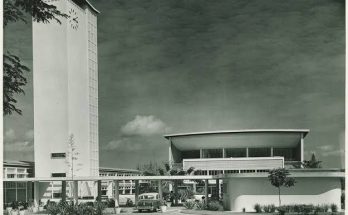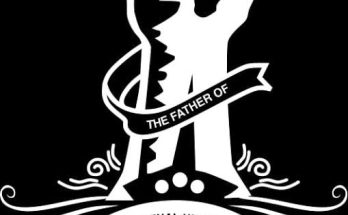Fourth estate of the realm; watchdog; mirror of society; voice of the people; bulwark of democracy. Over the years, these various words and phrases have been used to characterise the importance and indispensability of the press. The rise of democratic ideals, institutions, and systems made it extremely imperative that a functional press exist, as the press is one of the subtle but pertinent institutions that actually make democracy what it is.
The importance of the press is simply hinged on the critical resource that it works with, which is information. Information is a pivotal resource whose presence or absence is enough to cause serious effects on the functionality of society. Information given by the press is not solitary. It has ripple effects. It enables the receivers to make informed decisions that shape how they partake in society and, consequently, in society itself.
In a similar fashion to the grandiose discussions of the nature of man, the universe, and man’s place in the universe, this resource helps the masses to understand who they are, the world they are in, and most importantly, what they should be doing in the world. This is why various leaderships, which here is simply a flowery language for regimes and dictatorships, put a premium on controlling the press because it gives access to controlling the actions of the people.
This is a logic that George Orwell understood and employed in his tale-telling in both 1984 and Animal Farm, with the latter simply being a satirical representation of the mechanics of the actual world. Controlling information can equal controlling the decisions that people will make because such decisions are simply shaped by the information obtained. This is why in the Orwellian world of both Manor’s Farm and the dystopian city of Airstrip One, the major enabler of authoritarianism is press control.
Unfortunately, this is a situation that transcends the imaginative world of stories and the borders of time. This one will be present as long as people exist and one we have experienced as Nigerians. The various military stints experienced by the nation have proven the aversiveness of control extremists to the existence of a free press. The death of Dele Giwa and other journalists, which occurred under extremely suspicious conditions, still rings clearly. The narrative in civilian leadership has not been extremely different, as various means —which include economic leverage, intimidation, censorship, and others— are being used to choke the voice of the people.
Just like mouths that bite the hands that feed them, the proliferation of democratic backsliding among leaders indicates that democracy needs to protect itself by first protecting a free press. Democracy, which is a government of the people, by the people, and for the people, unarguably needs the people.
A free press ensures that the people are in control, thereby mitigating the tendencies of democratic backsliding, but when it is compromised, the will of the people can be subject to the whims of power absconders. A free press aids in every stage of the democratic process, from the selection of leaders to the checking of such leaders and the evaluation of leaders.
Beyond these, the press creates a platform to interact with varying viewpoints and new information which contributes to a holistic perspective that would better influence decision-making by the people.
In the words of Walter Cronkite, “Freedom of the press is not just important to democracy; it is democracy”. Following the end of World War II, the Universal Declaration of Human Rights (UDHR) was published by the United Nations, and Article 19 of that document further cemented the importance of freedom of expression, which is the basic principle underlying the freedom of the press.
“Everyone has the right to freedom of opinion and expression; this right includes the freedom to hold opinions without interference and to seek, receive and impart information and ideas through any media and regardless of frontiers,” the article reads.
World Press Freedom Day, marked on May 3, was initiated by the United Nations to bring to the fore the importance of a free press in a properly functioning democracy, and as providence would have it, this is a reminder that is well due in the world, Nigeria, and the University of Ibadan.
The supposedly intellectual nature of universities often drives the notion that idealism would be a major force in common practices. However, the just-concluded session at the University of Ibadan says otherwise.
When Dr Bayo Ajala and his peers established the Union of Campus Journalists University of Ibadan (UCJUI) in 1987, they did so because they saw the importance of the press in ensuring a properly functioning university community. However, decades later, freedom of the press in this “intellectual arena” is being threatened.
There were various instances in the last Student Union election that indicated the resistance of certain bodies to factual reporting. Campus journalists simply carrying out due diligence were threatened, harassed, verbally abused, and physically assaulted. In an arena which should pride itself on the ideals of democracy, this is a breach of the very essence of its functioning.
In the spirit of press freedom, this is a timely reminder of the importance of this democratic tenet. The university management, student leaders, and student politicians need to acknowledge this tenet and work by its principles. The truth should not be subdued, whether or not it is in favour. The people should know, and after they know, they can execute whatever corresponding action is required. Suppressing and censoring facts and opinions is simply suppressing the development of a well-functioning society.
However, this permutation does not leave members of the Fourth Estate out of the mix. In fact, it confirms that they have a whole lot of responsibility in ensuring a properly functioning society. In the words of Malcolm X, “The media is the most powerful entity on earth. They have the power to make the innocent guilty and to make the guilty innocent, and that’s power. Because they control the minds of the masses”.
Although it can be argued that this quote seem reductionist and an oversimplification, the above statement holds water despite it not being a full representation of a free press. A free press does not control the minds of the masses; it empowers the masses with relevant information so they can make their own choices. This marks a free press from a democratically backsliding one.
Press organisations must be careful enough to ensure that they are not controlling the minds of the masses but rather empowering them to make the right choices. Agenda-setting and gatekeeping are tools that should not be deployed for self-serving reasons but for the right societal causes. We must try as much as possible to practise ethical and factual journalism.
Political, leadership, and governmental authorities are saddled with responsibilities of ensuring a free press. Limiting freedom of the press will not achieve anything good. A free press might not be perfect, but a controlled one is nothing but destructive.
“A free press can, of course, be both good and bad, but, most certainly, without freedom, the press will never be anything but bad.” – Albert Camus.



